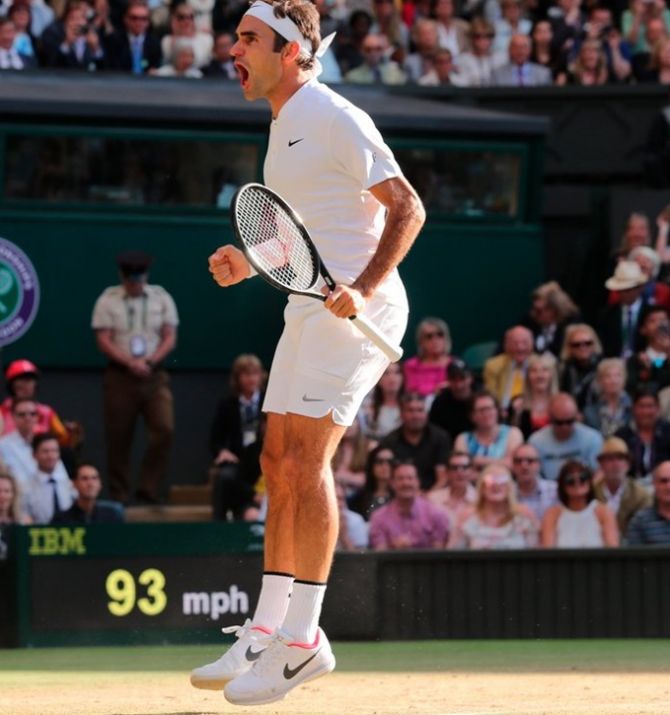'Young guns are still coming through, they're just not that young'

As another Grand Slam crown looks set to be snaffled by a man in his thirties this weekend, tennis fans lamenting a dearth of dynamic up-and-comers need not worry, says former world number one Mats Wilander.
Young pretenders are still punching their way to the top as they always have - they are just not quite as young as they once were ... and are never likely to be in the men's game at least, the Swede told Reuters at Wimbledon.
Wilander, leading Eurosport's coverage of the grasscourt Grand Slam, was one of several stars who took the tennis world by storm some 35 years ago when he won his first of seven grand slam titles aged just 17.
That French Open victory was followed a few years later by 17-year-old Boris Becker winning Wimbledon, and by 19-year-old Stefan Edberg winning in Australia.
A look at the four players still in contention for Sunday's men's Wimbledon final could hardly contrast more.
Sam Querrey and Marin Cilic are still just in their 20s, while Tomas Berdych is 31 and tournament favourite Roger Federer is a seasoned 35-year-old.
In fact, five of the last eight men were in their thirties.
"I am not saying 30 is the new 20, but for sure 30 is the new 23 or 24," Wilander said.
"When we got to 30 it was a case of 'come on, he's done'.
"But now the real window for these guys winning big titles is between age 23 or 24 to 33 to 34. Back in my day it was something like 18 to 28."
The phenomenon is not as prevalent in the women's game. Six of the last eight were under 29 with the youngest, Jelena Ostapenko, just 20.
Wilander says the reason it is unlikely we will see a male teenage breakthrough any time soon is because of the increased sporting longevity of the giants of the game.
"I was talking to (34-year-old beaten quarter-finalist) Gilles Muller the other day and he was telling me he is a much better player today than he was 10 years ago.
"He, like many of the other guys, is really taking care of his body. The guys now are making more money, they have got the trainers and the therapists and the physios to really take care of themselves.
"They really are not fading and as a consequence there is less space at the top. More of the players at the top now have even more experience. And it is that experience which is really, really valuable."
It is taking new talent longer to find its place in the upper echelon of the game, Wilander said.
"Twenty-four or 25, that is when these guys are just coming into their peak," he said.
"They are just becoming a real threat. Because everything is much, much tougher now. When we started aged 15 or so, there was less to figure out in those days.
"Milos Raonic, Grigor Dmitrov (both 26)... they are the age where they are coming through. These young guys are coming still, they just won't ever be as young as they used to be."














 © 2025
© 2025